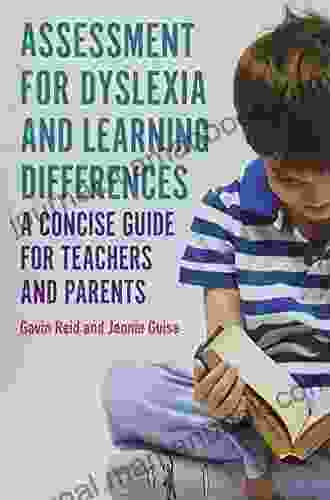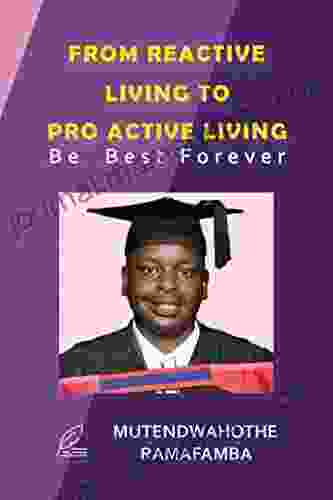A Concise Guide for Teachers and Parents: Fostering Literacy in Children with Special Needs

Literacy is a fundamental skill that opens doors to knowledge, communication, and personal growth. For children with special needs, developing literacy skills can be particularly challenging, but it is essential for their academic success and overall well-being. This guide provides teachers and parents with a comprehensive overview of strategies and resources to support children with special needs in their literacy journey.
Understanding Literacy Development in Children with Special Needs
Literacy encompasses various skills, including phonological awareness, phonemic awareness, letter recognition, decoding, and comprehension. Children with special needs may experience difficulties in one or more of these areas due to cognitive, physical, or developmental differences.
5 out of 5
| Language | : | English |
| File size | : | 1295 KB |
| Text-to-Speech | : | Enabled |
| Enhanced typesetting | : | Enabled |
| Print length | : | 138 pages |
| Screen Reader | : | Supported |
* Cognitive Challenges: Children with learning disabilities, such as dyslexia or dysgraphia, may struggle with processing language, memory, or attention, which can impact their literacy development. * Physical Challenges: Motor impairments, visual impairments, or hearing impairments can make it difficult for children to engage in reading and writing activities. * Developmental Differences: Children with autism spectrum disorder or intellectual disability may have unique learning styles and require tailored approaches to literacy instruction.
Effective Strategies for Teaching Literacy to Children with Special Needs
1. Individualized Instruction: Tailor instruction to each child's strengths, needs, and learning style. Consider using multisensory approaches, visual aids, and assistive technology to support their learning.
2. Multisensory Activities: Engage children through activities that involve sight, sound, touch, movement, and smell. Use sensory bins, playdough, magnetic letters, and tactile books to enhance their learning experience.
3. Phonological and Phonemic Awareness: Develop children's ability to identify and manipulate sounds in words. Play rhyming games, encourage them to clap out syllables, and introduce phonics lessons in a systematic and engaging manner.
4. Letter Recognition and Decoding: Introduce letters through hands-on activities, such as tactile letter cards, letter-matching games, and letter-shaped snacks. Provide explicit instruction in phonics rules and strategies to help children decode unfamiliar words.
5. Fluency Practice: Encourage children to read aloud regularly. Provide repeated exposure to the same texts to build fluency. Use choral reading and audiobooks to support struggling readers.
6. Comprehension Strategies: Teach children comprehension strategies, such as visualizing, making connections, asking questions, and summarizing. Use graphic organizers, story maps, and discussion questions to enhance their understanding.
7. Assistive Technology: Utilize assistive technology, such as audiobooks, speech-to-text software, and assistive keyboards, to support children who struggle with reading or writing.
Collaborating with Parents to Support Literacy Development
Parents are invaluable partners in their children's literacy journey. Teachers and parents should work together to:
* Establish Clear Goals: Collaborate to set realistic and individualized literacy goals for the child. * Provide Consistent Practice: Encourage parents to engage in literacy activities at home, such as reading aloud, playing word games, and writing simple letters or stories. * Foster a Positive Literacy Environment: Create a home environment that promotes literacy by providing access to books, writing materials, and engaging in conversations that spark interest in reading and writing. * Share Progress and Celebrate Successes: Communicate regularly with parents about the child's progress, share successes, and work together to address any challenges.
Resources for Teachers and Parents
* Dyslexia Foundation: https://dyslexiafoundation.org/ * National Institute of Child Health and Human Development: https://www.nichd.nih.gov/ * Understood.org: https://www.understood.org/ * Reading Rockets: https://www.readingrockets.org/ * Special Education Guide: https://www.specialeducationguide.com/
Fostering literacy in children with special needs requires a collaborative effort between teachers and parents. By understanding their unique challenges, implementing effective strategies, utilizing assistive technology, and collaborating closely, we can provide children with the support they need to succeed in their literacy journey and reach their full potential. Remember, every child has the ability to learn and grow, and with the right guidance and encouragement, they can overcome challenges and become lifelong learners.
5 out of 5
| Language | : | English |
| File size | : | 1295 KB |
| Text-to-Speech | : | Enabled |
| Enhanced typesetting | : | Enabled |
| Print length | : | 138 pages |
| Screen Reader | : | Supported |
Do you want to contribute by writing guest posts on this blog?
Please contact us and send us a resume of previous articles that you have written.
 Top Book
Top Book Novel
Novel Fiction
Fiction Nonfiction
Nonfiction Literature
Literature Paperback
Paperback Hardcover
Hardcover E-book
E-book Audiobook
Audiobook Bestseller
Bestseller Classic
Classic Mystery
Mystery Thriller
Thriller Romance
Romance Fantasy
Fantasy Science Fiction
Science Fiction Biography
Biography Memoir
Memoir Autobiography
Autobiography Poetry
Poetry Drama
Drama Historical Fiction
Historical Fiction Self-help
Self-help Young Adult
Young Adult Childrens Books
Childrens Books Graphic Novel
Graphic Novel Anthology
Anthology Series
Series Encyclopedia
Encyclopedia Reference
Reference Guidebook
Guidebook Textbook
Textbook Workbook
Workbook Journal
Journal Diary
Diary Manuscript
Manuscript Folio
Folio Pulp Fiction
Pulp Fiction Short Stories
Short Stories Fairy Tales
Fairy Tales Fables
Fables Mythology
Mythology Philosophy
Philosophy Religion
Religion Spirituality
Spirituality Essays
Essays Critique
Critique Commentary
Commentary Glossary
Glossary Bibliography
Bibliography Index
Index Table of Contents
Table of Contents Preface
Preface Introduction
Introduction Foreword
Foreword Afterword
Afterword Appendices
Appendices Annotations
Annotations Footnotes
Footnotes Epilogue
Epilogue Prologue
Prologue Nicole Miyuki Santo
Nicole Miyuki Santo Alex Gadd
Alex Gadd Ava Burton
Ava Burton Susan Henderson
Susan Henderson Elena V Shliakhovchuk
Elena V Shliakhovchuk Kenna Mckinnon
Kenna Mckinnon Fernando Torres
Fernando Torres Tom Taylor
Tom Taylor Raymond S Edge
Raymond S Edge Mckenzie Funk
Mckenzie Funk Hamid Majid Abbasi
Hamid Majid Abbasi Liam Long
Liam Long Holly Ice
Holly Ice Alex Haley
Alex Haley Melissa Everett
Melissa Everett Andrew Young
Andrew Young C F Earl
C F Earl Sid Oates
Sid Oates Sandra F Rief
Sandra F Rief Michael Schmidt
Michael Schmidt
Light bulbAdvertise smarter! Our strategic ad space ensures maximum exposure. Reserve your spot today!
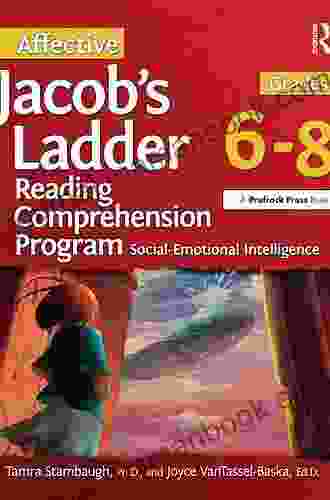
 Ken FollettDelving into the Affective Jacob Ladder: Transforming Reading Comprehension...
Ken FollettDelving into the Affective Jacob Ladder: Transforming Reading Comprehension...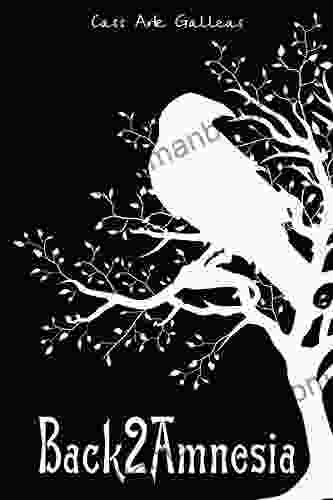
 Forrest BlairJourney into the Realm of Back2amnesia: Poems and Stories for Unforgettable...
Forrest BlairJourney into the Realm of Back2amnesia: Poems and Stories for Unforgettable... Fernando PessoaFollow ·10.2k
Fernando PessoaFollow ·10.2k Floyd RichardsonFollow ·19.3k
Floyd RichardsonFollow ·19.3k Guy PowellFollow ·2.2k
Guy PowellFollow ·2.2k Isaac AsimovFollow ·16.2k
Isaac AsimovFollow ·16.2k Vince HayesFollow ·11.3k
Vince HayesFollow ·11.3k Ian MitchellFollow ·11.7k
Ian MitchellFollow ·11.7k Jon ReedFollow ·5.3k
Jon ReedFollow ·5.3k Jackson BlairFollow ·15.7k
Jackson BlairFollow ·15.7k
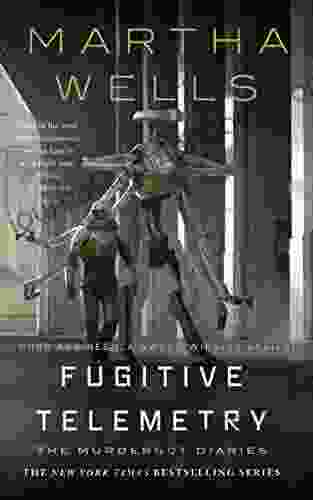
 Alexandre Dumas
Alexandre DumasFugitive Telemetry: Unraveling the Secrets of the...
In the realm of...

 Caleb Carter
Caleb CarterBlack Clover Vol 25: Humans and Evil - A Journey into the...
Unveiling the Sinister Forces Black...

 Israel Bell
Israel BellHow to Make Offers So Good People Feel Stupid Saying No
In today's competitive business environment,...

 Simon Mitchell
Simon MitchellWrath of Hades: The Children of Atlantis
An Epic Tale of...

 Percy Bysshe Shelley
Percy Bysshe ShelleyStrengthen Your Immune System: Fight Off Infections,...
What is the...

 Clark Bell
Clark Bell10 Things I Wish Someone Had Told Me Earlier
As we navigate through life, we accumulate a...
5 out of 5
| Language | : | English |
| File size | : | 1295 KB |
| Text-to-Speech | : | Enabled |
| Enhanced typesetting | : | Enabled |
| Print length | : | 138 pages |
| Screen Reader | : | Supported |


